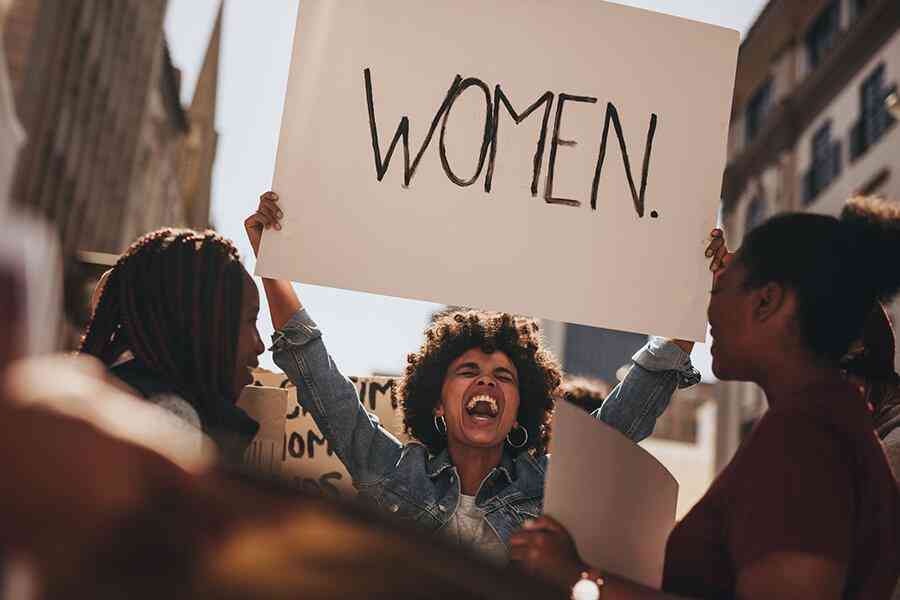
THE concept of women empowerment has come a long way, but not without pitfalls. Women's empowerment is defined in several ways, including accepting women's viewpoints, making an effort to seek them and raising the status of women through education, awareness, literacy, training and participation. Women's empowerment is seen as equipping and enabling them to make life-determining decisions.
While the concept of women’s empowerment gained traction in the 1980s, it has its roots in egalitarianism whose ideals were a significant feature of the enlightenment movement in the 17th and 18th centuries.
Egalitarianism is a school of thought that builds from the concept of social equality, prioritising it for all people. It is characterised by the idea that all humans are equal in fundamental worth or moral status and that all citizens of a State or society should be accorded exact equal rights.
Did the world need to wait this long to recognise the importance of women in human existence and social development? The answer is no. The hold-up had to do with power.
Egalitarianism is about balancing power dynamics and relations. Women empowerment is about acknowledging the rights of women and their equal access to opportunities. When and where women are denied these, men tend to exert more power over women.
The imbalance of power between men and women, in most societies, is well and deeply rooted within the structures of culture. This is because culture encompasses the social behaviour, institutions and norms found in human societies, as well as the knowledge, beliefs, arts, laws, customs, capabilities and habits of the individuals in these groups.
Culture often originates from or is attributed to a specific region or location. Within culture, social identities are defined and ascribed; roles and responsibilities are allocated unquestionably. Religion is a major component of culture and an influential reference on how members of society must act, behave and meet social expectations to please the gods.
In that rigid cultural foundation is where men derive and centralise power; and where women lose theirs. As a result, women were treated as second-fiddle to men. They were treated lesser and inadequate to perform certain functions in society. Some of them were married off as children, and denied access to education and economic opportunities, while others were sacrificed for rituals or recruited to serve powerful men’s political, religious and even sexual egos.
- Women central to human existence, development
- Women key to family, national development
- Feature: Apostolic sect women defy religious teachings to save their children
- FEATURE: Africa intensifies fight against religious related child sexual abuse
Keep Reading
These imbalances were cemented in religion, laws, rules, regulations, practices and prejudices against women. It was only when egalitarian activism rose and made people realise that women are equal human beings and they have rights just like men. That is when society began to wake up.
Advances in technology and civilisation have also conspired to demystify the gender imbalances myths and unmasked the culturally blurred and yet glaring fact that women are central to human existence and social development. Since then, they have continued to challenge the patriarchal doctrines that say if there are no men there is no life and they have made in-roads into male domains. They have shown that they can do more and assume more responsibilities to humanity than just being housewives.
We can start from conception to carrying the pregnancy, the painful process of delivery and the long-lasting task of raising the child into society. All the eight billion people in the world were carried, born and raised by women. All the advances this world has witnessed are outcomes of children raised and nurtured by women.
Even with the laws in place to encourage men to assume their parental responsibilities, they can still sneak from their parental responsibilities leaving women to care for the child single-handedly. Rarely do women ponder escaping parenting.
It is for these reasons that there is this slogan that goes: If you empower a woman, you empower a society and a generation. The idea is not to sideline men, but it means that empowering a woman economically and through education, often creates ripple effects that positively affect communities in bigger and more endearing ways. It is worth noting that empowering women should not be seen as neglecting men. That would be counter-productive. Societies where men are side-lined are unlivable due to crime, so a balance is needed.
Empowering women is a vital component of achieving community and national development. This includes deliberate local and national strategies and making concerted efforts to improve their sense of self-worth, unimpeded decision-making, improved access to opportunities and resources; and most importantly to ensure they have power and control over their lives.
There are moments when women have done so well, but hit the wall due to cultural or legal requirements. They are unable to proceed without the approval of men. Removing inhibitive legal and cultural factors will have expand their horizons; thus increasing their ability to contribute towards community and national development.
Economic empowerment allows women to control and benefit from resources, assets and income. The welfare of children and the broader families largely lies in the hands of women. They are experts in managing families’ resources and their empowerment also improves the national quality and the quantity of human capital available for economic development.








